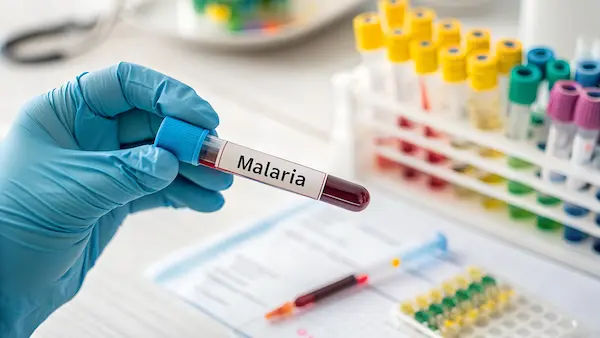Understanding Viral Fever and Its Management
Explore the causes, symptoms, and types of viral fever. Learn how to manage it effectively at home, when to seek medical help, and preventive measures to avoid future infections.

Written by Dr. Shaik Abdul Kalam
Reviewed by Dr. Mohammed Kamran MBBS, FIDM
Last updated on 21st Aug, 2025

Introduction
Viral fever is a common condition that affects people of all ages, especially during seasonal changes. It is caused by viral infections and often leads to symptoms like high body temperature, body aches, and fatigue. While most viral fevers are mild and resolve on their own, understanding the condition and knowing how to manage it can help you recover faster and prevent complications.
What is Viral Fever?
Viral fever refers to an increase in body temperature caused by a viral infection. Unlike bacterial infections, which require antibiotics, viral fevers are usually self-limiting, meaning they go away on their own with proper rest and care. Common viruses that cause fever include influenza (flu), dengue, chikungunya, and the common cold virus.
Symptoms of Viral Fever
The symptoms can vary depending on the type of virus but often include:
High fever (above 100.4°F or 38°C)
Chills and sweating
Headache and body aches
Fatigue and weakness
Sore throat or cough
Runny or stuffy nose
Nausea or vomiting (in some cases)
Skin rashes (in infections like dengue or measles)
If symptoms persist beyond 3-4 days or worsen (e.g., difficulty breathing, severe dehydration, confusion), seek medical attention immediately.
Health Topic Carousel:
Doctor Speciality: General Physician
Text: Consult Top Specialists
Causes and Transmission
Viral fevers spread through:
Airborne droplets (coughing, sneezing)
Contaminated food or water
Mosquito bites (dengue, chikungunya)
Direct contact with an infected person
Children, elderly individuals, and those with weakened immune systems are at higher risk.
How to Manage Viral Fever at Home?
Most viral fevers can be managed with simple home care:
1. Stay Hydrated
Drink plenty of fluids (water, herbal teas, coconut water, ORS) to prevent dehydration.
Avoid caffeine and alcohol as they can worsen dehydration.
2. Rest Well
Your body needs energy to fight the infection, so avoid physical strain.
3. Medications for Relief
Paracetamol (acetaminophen) helps reduce fever and pain.
Avoid aspirin (especially in children) and unnecessary antibiotics (they don’t work against viruses).
4. Eat Light and Nutritious Food
Opt for soups, khichdi, fruits, and easily digestible meals.
Avoid oily, spicy, or heavy foods.
5. Use Home Remedies
Warm water gargles for sore throat.
Steam inhalation for congestion.
Lukewarm sponge baths if fever is very high.
When to See a Doctor?
Consult a healthcare provider if:
Fever lasts more than 3-4 days or spikes above 103°F (39.4°C).
You experience severe headache, rash, or breathing difficulties.
There are signs of dehydration (dry mouth, dizziness, reduced urination).
Symptoms worsen despite home care.
Prevention Tips
Wash hands frequently with soap and water.
Avoid close contact with infected individuals.
Use mosquito repellents to prevent dengue/chikungunya.
Strengthen immunity with a balanced diet, exercise, and adequate sleep.
Need Expert Advice?
If you or a loved one is experiencing persistent fever or severe symptoms, consult a doctor for proper diagnosis and treatment. You can easily book a consultation or lab tests through Apollo 24|7 for quick and reliable healthcare support.
Conclusion
Viral fever is usually not serious, but timely care and rest are essential for recovery. By following these simple steps, you can manage symptoms effectively and prevent complications.
Would you like to schedule a doctor’s consultation or a lab test?
Health Topic Carousel:
Doctor Speciality: General Physician
Text: Consult Top Specialiss




